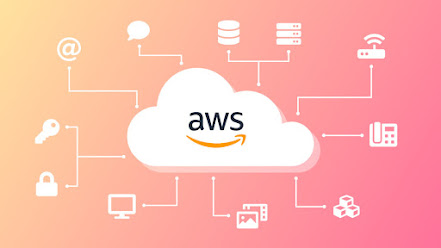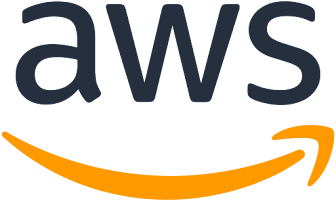Hello guys, if you are preparing for Cloud engineer interview or preparing for a developer role where AWS cloud skills are required and need AWS questions to kick start your preparation then you have come to the right place. Earlier, I have shared 20 Cloud Computing Interview Questions with answers and in today's article, I am going to share 20 common AWS questions with answers from interviews. These questions are suitable for 1 to 3 years experienced AWS professionals as it touches fundamental AWS concepts and services. If you have worked on AWS platform then most likely you can answer all of these questions but if you struggle then you can always go back and join one of these best AWS cloud courses to learn and revise key AWS concepts before interviews.
As most of you must already know, cloud computing has recently emerged as a hotspot because of its easy usability. Cloud computing is not just limited to IT and software firms.
It is used by companies across sectors like banking, retail, computing, education, and automobile. Many companies all over the world have begun using cloud computing for data storage and implementation. If you are looking to get into cloud computing, opportunities are limitless and the remunerations are high.
But what you need to understand is that you need to have the right skillset and knowledge to land your dream cloud computing job. This will allow you to enter the wonderful world of cloud computing as well as grow as a professional.
In this scenario, AWS has emerged as the most popular cloud service provider. There is a huge demand in the industry for AWS-certified cloud architects as well as professionals.
If you are looking to kick-start your career in cloud computing, then you have come to the right place. The interview questions in this article will no doubt help you land your dream job. Keep reading to find out more.
As most of you must already know, cloud computing has recently emerged as a hotspot because of its easy usability. Cloud computing is not just limited to IT and software firms.
It is used by companies across sectors like banking, retail, computing, education, and automobile. Many companies all over the world have begun using cloud computing for data storage and implementation. If you are looking to get into cloud computing, opportunities are limitless and the remunerations are high.
But what you need to understand is that you need to have the right skillset and knowledge to land your dream cloud computing job. This will allow you to enter the wonderful world of cloud computing as well as grow as a professional.
In this scenario, AWS has emerged as the most popular cloud service provider. There is a huge demand in the industry for AWS-certified cloud architects as well as professionals.
If you are looking to kick-start your career in cloud computing, then you have come to the right place. The interview questions in this article will no doubt help you land your dream job. Keep reading to find out more.
20 AWS Interview Questions Answers for 3 Years Experienced
Without wasting anymore of your time here is a list of AWS interview question with answers for both beginners and people with 1 to 3 years of experienced professionals. I have tried to cover key AWS concepts and services through these questions so that you can quickly revise key concepts before going for interviews but I may have missed a couple of topics.If you feel a topic or two is missed then feel free to suggest in comments. You can also share AWS questions asked to you during interviews and you don't answers of them or looking for answers, together we can help each other to prepare well for AWS interviews.
3. What do you know about AWS SNS?
1. What do you know about AWS?
AWS,
or Amazon Web Services, is a set of cloud computing tools and services
that are offered by Amazon. It has more than 200 comprehensive data
center services all over the world. It offers a wide variety of services
like data warehousing and content delivery.
2. What can you tell us about Amazon S3?
Amazon
Simple Storage Service, better known as Amazon S3, is object storage
that has a simple web service interface that can be used for storing and
retrieving large amounts of data from anywhere on the web.
3. What do you know about AWS SNS?
Amazon
Simple Notification Service, or Amazon SNS, is a push notification
service that can be used for sending individual messages to a big group
of email and mobile subscriber systems. It includes Amazon SQS Queues,
AWS Lambda functions, and HTTPS endpoints.
4. What is CloudFront?
CloudFront
is one of the most popular delivery networks in the world. It works
well with services like AWS Shield and helps in curbing DDoS attacks. It
makes use of Amazon S3, Elastic Load Balancing, or Amazon EC2 as
sources.
5. What is the basic difference between horizontal and vertical scales?
Horizontal Scale provides new resources along with new hardware devices for supporting the infrastructure.
In Vertical Scale, you need to increase power resources by upgrading the current machine.
6. What are the advantages of AWS's Disaster Recovery Solution?
The
AWS Disaster Recovery Solution allows companies to reduce their capital
expenses. It offers fast setup times as well as greater productivity.
It helps companies to scale up even amidst seasonal fluctuations. It
also ensures fast retrieval of files.
7. What are the different types of load balancers in EC2?
There
are 3 types of load balancers in EC2. They are Application Load
Balancer, Network Load Balancer, and Classic Load Balancer.
8. What do you know about DynamoDB?
DynamoDB
is basically a NoSQL database. It offers flexibility and reliability in
performance. It helps you in hardware provisioning, setup,
configuration, replication, software patching, and cluster scaling. If you want to learn more, you can also refer these best DynamoDB courses where I have shared in-depth courses to learn DynamoDB.
9. What is CloudFormation?
CloudFormation
helps you in standardizing and replicating the architectures as well as
facilitating the execution and optimization of resources. It creates a
proprietary library of instant templates or architectures that can be
delivered at any time.
10. What are the advantages of using CloudFormation?
CloudFormation
reduces infrastructure deployment times and increases confidence in
deployments. It replicates complex environments and reuses the
definitions between different products. You can also checkout these best CloudFormation courses to learn more about this essential AWS service in depth.
11. What do you know about Elastic Beanstalk?
Beanstalk
is basically an orchestration service offered by AWS. It is used in a
lot of AWS applications like EC2, S3, Simple Notification Service,
CloudWatch, autoscaling, and elastic load balancers. It is the fastest
way to deploy your application on AWS.
12. What can you tell us about Geo restriction in CloudFront?
Geo
restriction is useful for preventing users from certain geographical
locations from accessing content that you are distributing through
CloudFront web distribution.
13. What can you tell us about a T2 instance?
T2
instances are basically designed to provide a moderate baseline
performance as well as the capability to burst into higher performance
when required by the workload.
14. What can you tell us about AWS Lambda?
AWS
Lambda is actually a computing service that allows you to run code in
the AWS Cloud without managing or provisioning servers. This is the basis of serverless computing in AWS and its quite popular as you don't need to pay if your service is idle.
You can even deploy Java application on cloud to run them as serverless application using AWS Lambda. If you want to learn more you can also see this best AWS Lambda courses for developers and DevOps.
15. What can you tell us about a serverless application in AWS?
The
Serverless Application Model in AWS extends AWS CloudFormation and
provides a simple way of defining the Amazon API Gateway APIs, AWS
Lambda functions, and Amazon DynamoDB tables.
16. What is the use of Amazon Elasticache?
Amazon
Elasticache is basically a web service that allows users to deploy,
operate, and scale an in-memory data store or cache in the cloud.
17. How is the buffer used in Amazon Web Services?
The
buffer is useful for making the system more robust as well as managing
the traffic or load by synchronizing different components.
18. What is the basic difference between stopping and terminating an instance?
Upon
stopping, the instance performs a normal shutdown before transitioning
to a stopped state. In contrast, when an instance is terminated, the
attached Amazon EBS volumes are deleted unless the volume's
deleteOnTermination attribute is set to false.
19. Can you change the private IP address of an EC2 while it is running in a VPC?
It
is not possible to change the primary private IP address. Secondary
private addresses can be unassigned, assigned, or moved between
interfaces.
20. What are the different types of cloud services?
The
different types of cloud services are Software as a Service, Data as a
Service, Platform as a Service, and Infrastructure as a Service.
Conclusion
That's all about the 20 common AWS Interview Questions with Answers for 1 to 3 years experienced developers and DevOps. I have no doubt that the interview questions in this article will
help you easily land your dream software job in cloud computing, If you liked this list of the Top 20 AWS Interview Questions, feel free to share it with your friends and family.
Other Interview Question Articles You may like to explore
- 20 Docker Interview Questions with Answers
- 25 DevOps Interview Questions with Answers
- 20 Kubernetes Interview Questions with answers
- 20 Software Design and Pattern Questions from Interviews
- 15 Cyber Security Interview Questions with Answers
- 30 JavaScript Interview Questions with Answers
- 20 Algorithms Interview Questions for Software Developers
- 25 Recursion Interview questions with answers
- 130+ Java Interview Questions with Answers
- 40+ Object-Oriented Programming Questions with Answers
- 20+ Spring Boot Interview Questions with Answers
- 20 JUnit Interview Questions with Answers
- 17 Spring AOP Interview Questions with Answers
- 25+ Spring Security Interview Questions with Answers
- 50 SQL and Database Interview Questions for Beginners
- 10 Oracle Interview Questions with Answers
- 20 PostgreSQL Interview Questions with Answers
- 50+ Microsoft SQL Server Phone Interview questions
- 12 SQL Query Interview questions with solutions
- 35 Python Interview Questions for 1 to 2 years experienced
Thanks for reading this article so far. All the best for your Java Developer or DevOps
interviews and if you have any questions which don't know answer or any
doubt feel free to ask in comments. Happy to answer any doubt you may have.
P. S. - If you want to learn AWS services in depth and looking for resources then I also suggest you to join this best AWS online courses to learn key AWS services in depth. Many of them also contain hands-on labs where you can practice with AWS services and tools.






No comments:
Post a Comment
Feel free to comment, ask questions if you have any doubt.